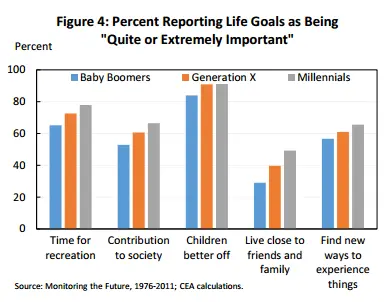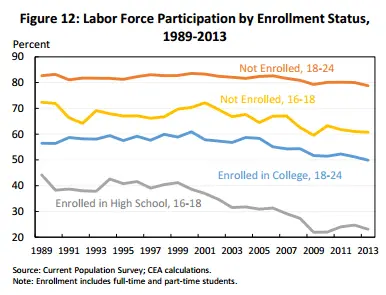Remember when you were a kid and saw adults as all-knowing authority figures that had their lives figured out? Little did you know how wrong you had been.
Growing older is not planned, it just happens.
Over time, you tend to take on more adult-like attributes like paying bills, signing up for a membership card at the local grocery store, and gradually getting less and less familiar with whatever's going on in today’s pop music. You can vote and rent a car and get married and have kids, and it is 100% normal.
But you don't fundamentally change as a result of this realization.
You don't gain new knowledge. You don't feel like an adult, and you don't have everything under control.
But there are some things that everyone goes through. Milestones with work, relationships, money, and career.
Although no two people will ever have the same experience:
Here are a few things that you will face, and managing them will become necessary.
1. Being in the wrong industry and feeling out of place

The career counselor, Alison Elissa Cardy, described a client named Adam - “His experience was more than just the regular ups and downs of a week. For this young professional, just getting out of bed and going to work as an insurance adjuster involved an intense exercise of willpower.
He found the travel and paperwork tedious, and his energy was totally depleted at the end of the day. He reported that his work doldrums were spilling over into other areas of his life, affecting his relationships with friends and family. When work feels like a drag before, during and after each day, it’s a clear sign that one of your work variables could use a change.”

The knowledge of your best career path will not magically drop into your brain one day in a blazing flash of insight. Instead, it’s something you will discover incrementally, over time, through a process of trial and error.
In this report by the White House Council of Economic Advisors, when it comes to working, more than anything else, quality of life appears to be the focus of this generation.
Millennials value staying close to family and friends, having free time for recreation, and working in creative jobs. However, they also want to make a positive social impact on their children and communities, as well as on society as a whole.

It’s no surprise that conventional work-leisure balance simply does not interest you.
For instance, high school seniors today are more likely than previous generations to want to make a contribution to society and be leaders in their communities.
Millennials have grown up in a world with connections. This goes beyond just staying connected virtually via social networks; they value the role that they as individuals, play in their communities.
2. Your network is sometimes as important as your work
Networking at its very core is about spotting opportunities. Even if your job isn’t explicitly to bring in new business or to market the company, you are probably expected to meet new people and understand the marketplace as a part of the organization.

Good working relationships improve perceptions of your personal success as well, so you want to spend time asking questions about the person you are talking to and their business, trying to see whether they have any problems that you can help with.
Spending time on building a relationship could deliver results in the future. Many jobs aren’t advertised, People simply recommend people they like, so while you might not have met the person you will be working for in the future you might have met one of their contacts who could put you forward for that dream job.

I owe every job I’ve ever had to networking. In fact, my current role is the end result of a relationship that began with a business meeting in suburban Atlanta in 2001 with the current Chairman of the New York Stock Exchange, Jeff Sprecher.
Thomas Farley had this to say about how he became the President of the New York Stock Exchange-
“When I walked out of that meeting in 2001, I made a conscious decision to find reasons and ways to stay in touch with Jeff. At the time, Jeff was the founder and CEO of a fledgling commodity-trading marketplace and there wasn’t necessarily an obvious benefit that I would receive from continuing my relationship with him; however, networking is about collecting relationships with interesting or influential people irrespective of the immediate benefit of these relationships. As it would happen, five years later, Jeff’s no-longer-fledgling business acquired the New York Board of Trade and he asked me to serve as President of this newly acquired business. Seven years after that, Jeff asked me to lead the New York Stock Exchange. If I had not spent five years after that first Atlanta meeting staying in touch with Jeff, through emails and phone calls, there is no way he would have considered me for president.”
3. Little gain, lots of pain will be a common occurrence
Twenty-somethings have seen slower wage growth than earlier generations of young adults. This situation was only worsened by the 2008 Crisis.
The following graph, from the White House Council, shows how the typical employed college graduate who entered the market in the mid-1990s saw a 50% wage growth between the ages of 23 and 28.

On the other hand for the college graduates who entered the labor market in 2008, the growth is under 25%.
Alison Hattfield, a columnist at Cosmopolitan talks about her experience getting her first job.
“When my college internship was ending and I was interviewing for an assistant position at the same publishing company, the editor-in-chief asked me if I had any "salary demands." I laughed and told him that legally he couldn't pay me less than minimum wage. He didn't. He also didn't pay me more. That set the bar low, not just for that job, but for the next job and the next.”
Her advice to twenty-somethings at the start of their career- “Before applying to any job, try to find out a salary range for the position and your experience level. Google salary surveys, and ask friends who work in your industry what's fair. It can be tough to get a big salary bump once you're already in place, and you can play catch-up for years.”
4. Running out of money and being broke regularly
As this graph shows, twenty-somethings are more likely to focus exclusively on studies instead of combining school and work. This leads to twenty somethings with a lot less money and a lot more debt.

In fact, around half of students borrowed student loans during the 2013-14 school year, an increase from around 30 percent in the mid-1990s, the average debt per borrower increased from $24,000 in 2004 to $30,000 in 2012.
With all this debt mounting with just your basic education, how do you manage to live your life?
The co-founder of Me & You (an organization that helps the homeless and kids in Washington D.C), Kim Chi Ha, wrote about her twenties on the Washington Post.
“I couldn’t get a job in the field that I wanted, and my credit card debt started to mount. So after months of job interviews going nowhere, I made a choice. I prioritized living over debt, over applying for more jobs. I made a choice to do whatever I was doing well. I started to put living on credit. I didn’t have a 9 to 5 job. I had absolutely no time constraints, and no responsibilities to anyone. I figured as I got older, it would be harder for me to travel. Life would get in the way, so why not go now, and worry about the debt later? So I did just that.”
She credits the experiences she had in those years as those that defined her life rather than more conventional ones like buying a house or getting married.
5. The true definition of freedom
In school and then in college, you're part of an institution. You’re usually not allowed to work full-time jobs, the workload is dependent on what you choose to take on and you have nothing to be stressed about because you're not paying your own bills, you are not responsible for people and no one depends on you for anything.
You just have boundless energy, a lot of free time and no accountability whatsoever.
When you begin to work, your attitude towards this changes, things like health concerns, your job and responsibility for other people begin to weigh on your mind.
But the silver lining on this one is very visible.
The path of life is full of changes and strange ups and downs. We all have to go through a very specific series of symptoms on our way to full adulthood that no doctor or teacher or even parent can warn us about in advance.
So what are you willing to do to upgrade your twenties today?
